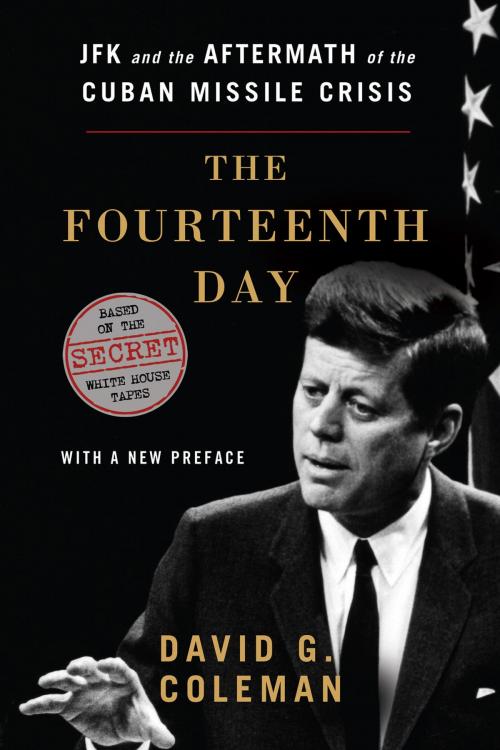The Fourteenth Day: JFK and the Aftermath of the Cuban Missile Crisis: The Secret White House Tapes
Nonfiction, History, Americas, United States, 20th Century| Author: | David G. Coleman | ISBN: | 9780393089226 |
| Publisher: | W. W. Norton & Company | Publication: | October 8, 2012 |
| Imprint: | W. W. Norton & Company | Language: | English |
| Author: | David G. Coleman |
| ISBN: | 9780393089226 |
| Publisher: | W. W. Norton & Company |
| Publication: | October 8, 2012 |
| Imprint: | W. W. Norton & Company |
| Language: | English |
A fly-on-the-wall narrative of the Oval Office in the wake of the Cuban Missile Crisis, using JFK’s secret White House tapes.
On October 28, 1962, Soviet Premier Nikita Khrushchev agreed to remove nuclear missiles from Cuba. Popular history has marked that day as the end of the Cuban Missile Crisis, a seminal moment in American history. As President Kennedy’s secretly recorded White House tapes now reveal, the reality was not so simple. Nuclear missiles were still in Cuba, as were nuclear bombers, short-range missiles, and thousands of Soviet troops. From October 29, Kennedy had to walk a very fine line—push hard enough to get as much nuclear weaponry out of Cuba as possible, yet avoid forcing the volatile Khrushchev into a combative stance. On the domestic front, an election loomed and the press was bristling at White House “news management.” Using new material from the tapes, historian David G. Coleman puts readers in the Oval Office during one of the most highly charged, and in the end most highly regarded, moments in American history.
A fly-on-the-wall narrative of the Oval Office in the wake of the Cuban Missile Crisis, using JFK’s secret White House tapes.
On October 28, 1962, Soviet Premier Nikita Khrushchev agreed to remove nuclear missiles from Cuba. Popular history has marked that day as the end of the Cuban Missile Crisis, a seminal moment in American history. As President Kennedy’s secretly recorded White House tapes now reveal, the reality was not so simple. Nuclear missiles were still in Cuba, as were nuclear bombers, short-range missiles, and thousands of Soviet troops. From October 29, Kennedy had to walk a very fine line—push hard enough to get as much nuclear weaponry out of Cuba as possible, yet avoid forcing the volatile Khrushchev into a combative stance. On the domestic front, an election loomed and the press was bristling at White House “news management.” Using new material from the tapes, historian David G. Coleman puts readers in the Oval Office during one of the most highly charged, and in the end most highly regarded, moments in American history.















